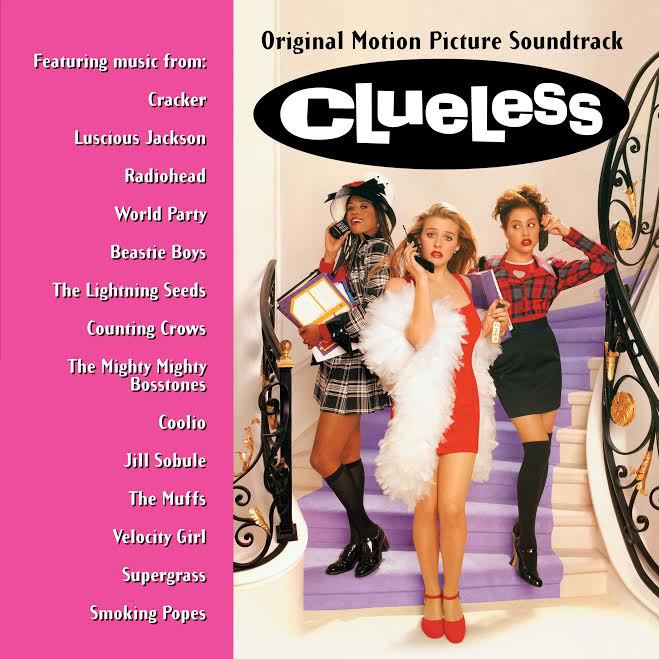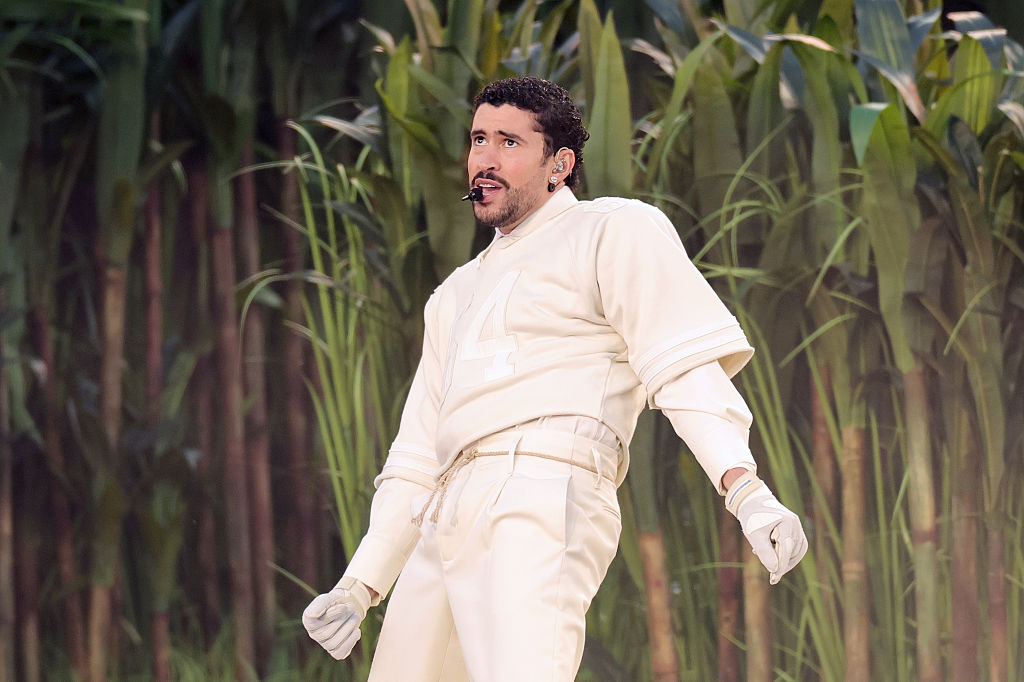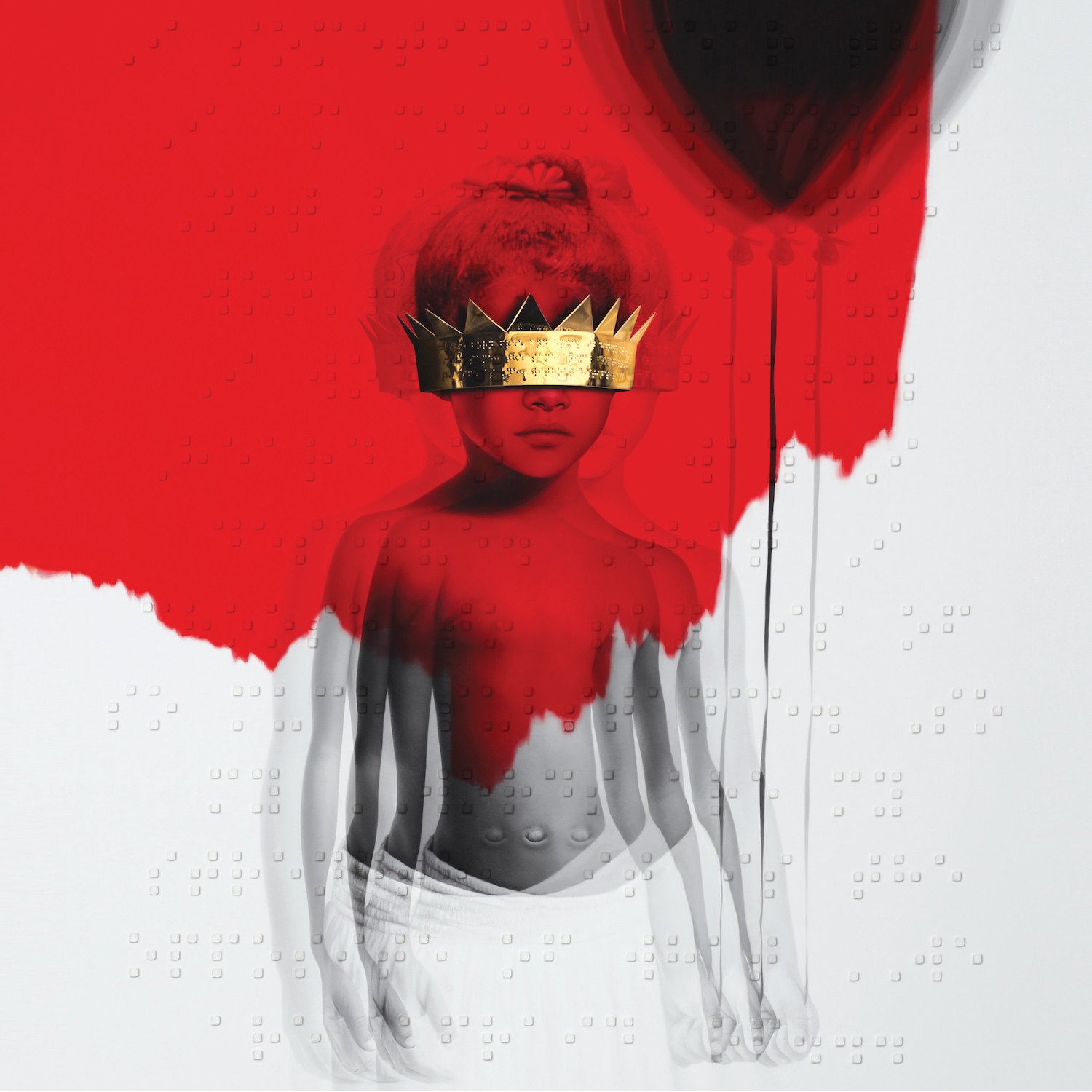Films made about teenagers are ephemeral by default. That doesn't make them forgettable, but while plotlines traverse decades (Clueless is, after all, based on Jane Austen's Emma), trends don't. Teen movies are nothing if not a burial ground for every gadget and outfit once thought of as "cool." But music doesn't go out of style as readily, and as much as a soundtrack might sound "SO [insert decade here]," songs of decades past tend to incite nostalgia rather than eye-rolls. Amy Heckerling's Clueless is a paramount example of a teen movie so good that it's been canonized as a time capsule, carefully parsed as a reminder of what was cool at the time of its release. Twenty years after it premiered in 1995, the humor in Clueless is just as biting and timeless, but its aesthetic definitely isn't. For older fans, it's a throwback, and for younger ones like myself, it encapsulates an era that we missed out on. It's fitting, really, that this movie turns 20 this year because the '90s are back in full-swing -- guitar-driven rock, chokers, Seinfeld, etc. Each of Heckerling's characters embodies a mid-'90s trope to such unabashed, dramatic heights that they become winking parodies of themselves. It's self-aware, and by disregarding the notion of "timeless" to make the most current movie possible, Heckerling created a classic.
Heckerling's movie wouldn't have the same longevity that it did without the help of Karyn Rachtman. Rachtman was the music supervisor on a bunch of great films of the era, among them Pulp Fiction, Boogie Nights, and Reservoir Dogs. Working along with Heckerling, Rachtman chose songs that would turn already funny scenes into memorable ones, and introduced a lot of American kids to then-up-and-coming acts in the process. A year after its release, the Clueless soundtrack was certified gold, and by 1998 it went platinum. At that point in time, soundtracks were a crucial selling point for a film, and Capitol Records backed Rachtman's efforts with a $1 million advance. In Jen Chaney's As If! An Oral History Of Clueless, Heckerling commented that she wanted the soundtrack to be "contemporary and cool," as in-the-moment as oversized cellphones and two-piece plaid ensembles.
The biggest question that Clueless enthusiasts have when they look at the compilation's tracklist is undoubtedly: "Why the hell didn't No Doubt make it on there?" At the time that Clueless hit theaters, No Doubt hadn't released Tragic Kingdom yet and were considered an exciting, though still unproven, band. Cher Horowitz and Dionne Davenport's reckless drive to school would lose any semblance of irony without Gwen Stefani's line "I'm just a girl I'd rather not be/ ‘Cause they won't let me drive late at night." No Doubt's "Just A Girl" made it into the movie, but not onto the official release mainly due to the fact that Tragic Kingdom was being put out by Trauma Records (a subsidiary of Interscope) in the fall, and Capitol wasn't keen to include them on a tracklist stuffed with their own artists. Not every song made the official commercial release, and that's typical for a soundtrack, but most of the time, all of the best songs are included and the others are considered filler. When we talk about Clueless' soundtrack, we're really talking about two collections of really great songs: the ones that made the CD release, and the ones that didn't.
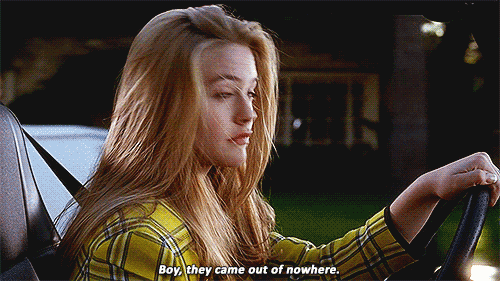
Rachtman shaped the soundtrack's mood with each of its leading characters' personality quirks in mind. Taste -- who has it and who doesn't -- is a central topic of conversation at Bronson Alcott High School, and Cher doesn't let viewers forget it by continually taunting the campus' leading fashion victim (or does she prefer "ensembly challenged"?), Amber Mariens. Of course taste peculiarities stretch beyond Cher's extensive wardrobe and into her white Jeep's cassette player. Cher likes bubbly alternative pop and the occasional happy-go-lucky hip-hop track when she's at a Val party. But musical typecasting isn't always presented in the form of a backing track. Each persona represented in the film is endowed with their own score of sorts, a kind of '90s alternative sound that's the sonic equivalent to their aesthetic. Musical references abound, and they don't end with the score.
The first time we meet the perpetually stoned Travis Birkenstock, he raises his hand in class to ask one of many boneheaded questions of the ever-earnest debate teacher Mr. Hall. "The way I feel about the Rolling Stones is the way my kids are going to feel about Nine Inch Nails, so I shouldn't torment my mom, right?" Wallace Shawn responds with a shrug and lukewarm agreement. Moments before, the sensitive-male-who's-really-just-an-asshole, Elton, begs to be dismissed from class because he can't find his Cranberries CD. (He later creepily sings their song "Away" to Cher as he comes on to her in a Valley parking lot). These distinctions are important to make in a film with a just-over 90-minute run time. Knowing what kind of music a character likes does half the work of figuring them out for us. We know who to align ourselves with based on their interests, and certain behavioral quirks are expected. It doesn't surprise us to learn that Travis has "by far the most tardies in the class" because we already know that he's a huge NIN fan who wears a drug rug. When the "mysterious" (gay) newcomer Christian Stovitz takes Cher out on their first "date" (platonic hangout), he asks her if she likes Billie Holiday. True to character, Cher responds with "I love him." Christian smirks and says nothing, because he's sophisticated. (For the record, Cher's dad doesn't find Christian sophisticated at all and wonders if he's a lost member of the Rat Pack.)
 |  |
[articleembed id="1785796" title="The Bends Turns 20" image="1787369" excerpt="We celebrate the anniversary of Radiohead's classic album."]
In other cases, the musical typecasting serves as lighthearted character assassination. Josh Lucas (Paul Rudd) is introduced by way of the "maudlin music of the university station," as Cher begrudgingly calls it. "What is it about college and cry-baby music?" The droning, sad croon emanating from the kitchen belongs to none other than Thom Yorke. Of course Josh loves Radiohead. Dude's sitting poolside reading fucking Nietzsche! In an interview with Idolator, Rachtman said that Heckerling considered Radiohead to be a "whiny whiny band." Radiohead were undoubtedly a force, but they were a sly one at the time, having just released The Bends several months prior to the Clueless premiere. Rachtman was initially nervous to ask Radiohead if she could feature the song in the film, especially since Cher refers to them as "maudlin" and "whiny." But the band agreed and ended up contributing a live acoustic rendition of "Fake Plastic Trees," which had been included as a B-Side on the song's single release. Notably absent from the soundtrack is anything remotely reminiscent of grunge, but that doesn't mean that the biggest musical trend in alternative rock at the time was excluded entirely. "So, this flannel thing. Is that a nod to the crispy Seattle weather, or are you just trying to stay warm in front of the refrigerator?" Cher asks Josh during the same scene in which she mocks his musical taste, fingering the blue plaid of his sleeve with a look of disgust that lets us know: Flannel isn't cool in Contempo Casual.

Paul Rudd's self-serious college do-gooder is allotted two "complaint rock" songs on the soundtrack's physical release, the other one being Counting Crows' cover of the Psychedelic Furs' "The Ghost In You." (Four of the songs on the soundtrack are covers; never forget World Party's excellent rendition of Mott The Hoople's "All The Young Dudes.") Even if Josh is stoked that he might get Marky Mark to plant a celebrity tree for his Tree People chapter, Josh's character doesn't mesh as easily with the posse of cool kids that surround Cher's immediate clique. These are the characters endowed with the montage songs: tracks that are anthemic and sweaty and sound like carefree kids having fun. The film's opening sequence is what Cher herself likens to a Noxzema commercial as the Muffs' cover of Kim Wilde's '81 hit "Kids In America" plays. A similar scenario emerges once the a newly made-over Tai Frazier makes her debut on the quad to the bouncy Britpop sounds of Supergrass' "Alright"; its chorus easily ties "Kids In America"'s for its young/wild/free disposition. Mr. Hal and Ms. Geist fall in love to the tune of yet another ebullient Britpop inclusion, the Lightning Seeds' "Change." But it's Tai's makeover scene that presents viewers with what might be the most memorable (and definitely the most intentionally snide) song on the record, "Supermodel."
Each character in Clueless contradicts his or her binary "type" about three-quarters of the way through the movie. Christian, who could be depicted as the emasculated gay character (see his snazzy outfits and copy of Naked Lunch) often seen in teen comedies, saves Tai from her macho tormenters at the mall, shoving one of them as he does so. Cher turns her attitude around to head the Pismo Beach Disaster Relief effort (cue Cracker's cover of Flamin' Groovies' "Shake Some Action") and Travis gets sober. No one needs a song to know that Cher's obsession with re-modeling Tai in her likeness is an exercise in extreme narcissism (which she eventually realizes), but having a snarky indictment of beauty standards playing in the background while Cher and Dionne primp and plume their heavily accented new friend helped. Rachtman conscripted her collaborators David Kitay, David Baerwald, and Brian MacLeod to write "Supermodel" before enlisting Jill Sobule to record the song. The singer-songwriter added her own bridge, which turned the track from a defiant jab at superficial teen culture into a pointed critique of body-image standards. "I didn't eat yesterday/ I'm not gonna eat today/ I'm not gonna eat tomorrow/ Cuz I'm gonna be a supermodel."
No film about young women in the mid-'90s would be complete without the inclusion of New York's all-female alt-rock act Luscious Jackson. The band was signed to the Beastie Boys' label Grand Royal (a subsidiary of Capitol) at the time that Clueless was in production, and the Beasties' decision to contribute their still-a-hardcore-band song "Mullet Head" followed, which was a pointed success for Rachtman since the Beasties rarely license their songs. A quintessential ‘90s soundtrack would feel empty without it. When Luscious Jackson asked to contribute a track they agreed, knowing that Heckerling was a strong female director, and they wanted to support her work regardless of how distant their upbringing was in comparison to Cher's. "Here (Squirmel Mix)" appears at the end of the college party, when Tai is half-asleep in Cher's lap, and Christian decides to go chase some late-night after party. The band's inclusion follows a performance by the Mighty Mighty Bosstones who, along with No Doubt, are the rare ska band in Clueless.
Brittany Murphy commands both of the party scenes in this film in her role as the wide-eyed and eager social butterfly, Tai. Murphy's character is the most malleable; she's the new girl desperate to make friends and date an optimum cutie, so up until she finally decides to fall for Travis, Tai just likes what ... everyone else likes! When Elton asks her to sing along to Coolio's "Rollin' With My Homies" she does, and it becomes her favorite song. If anyone tells you that the most iconic song off of this soundtrack ISN'T "Rollin' With My Homies," then they have absolutely no appreciation for cheesy hand-centric dances.
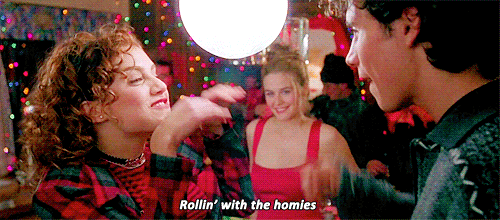
It's worth noting that both Elton and Tai sing the chorus incorrectly. "Rollin' With My Homies" was actually a composite of a track that Coolio had been working on called "Fantastic Voyage," a song that he re-named and re-framed into something with a broader, more universal appeal. "I just wanted to make something that was kind of hood, that was kinda street ... because the movie was kind of squeaky clean," he says in Chaney's oral history. Indeed, "Rollin' With My Homies" is the only hip-hop inclusion on the final soundtrack (though there are others to be found in the film, most notably Salt-N-Pepa's "Shoop").
There are also songs on the Clueless soundtrack that don't immediately recall particular scenes or characters, but are just as important to the movie's mood. Sub Pop mainstays Velocity Girl's gorgeous shoegazy pop plays quietly in the background of Cher, Dionne, and Tai's "calorie fest" before it's intercepted by Coolio, but "My Forgotten Favorite" is undoubtedly one of the best songs on the compilation when heard all the way through. The second-most subtle track comes in the form of the Chicago-based pop-punk band Smoking Popes whose "Need You Around" soundtracks the film's credits. The final track was originally supposed to be Oasis' "Whatever," which to Rachtman seemed like an all-too-obvious inclusion, but the band wasn't pleased to learn that its song wouldn't soundtrack the epic final kiss, and would instead just play when moviegoers were on their way out of the theater. Deciding that it was of paramount importance that General Public's "Tenderness" play in the closing scene, Smoking Popes' song was chosen in Oasis' wake. It's still the band's only song that ever charted.
[articleembed id="1075861" title="Singles Soundtrack Turns 20" image="1078322" excerpt="We look back on the classic soundtrack."]
The Clueless soundtrack is worth memorializing because you don't need to be a '90s kid to enjoy it. It's an inventive collection of varying genres that coalesce to embody a particular moment in time. Unlike other seminal soundtracks -- John Hughes' Pretty In Pink or Cameron Crowe's Singles, for example -- this compilation hops genre barriers and presents a partial rendering of what different kinds of teens listened to in the years after grunge broke. Britpop, hip-hop, alt-pop, and so-called complaint rock are all represented, and in this way, Heckerling made a small entryway for every conceivable "type" of teen, or adult, to enjoy the film. In truth, no one in Clueless is as stuck in their ways as they may seem. Despite her privilege, Cher worries about other people's happiness just as often as she does her own, Josh kinda-sorta has a sense of humor, and Dionne and her boyfriend Murray are more in love than they would ever let on in public. Though we're forced to readily identify with the popular crowd in Clueless from the opening shot on, no one is confined to their clique, and yes, everyone will be at the Valley party dancing to Coolio. This is a collection of songs that coexist as readily as the film's main characters; knowing what track you dig most might help you find your clique, but maybe it won't. Whatever.
